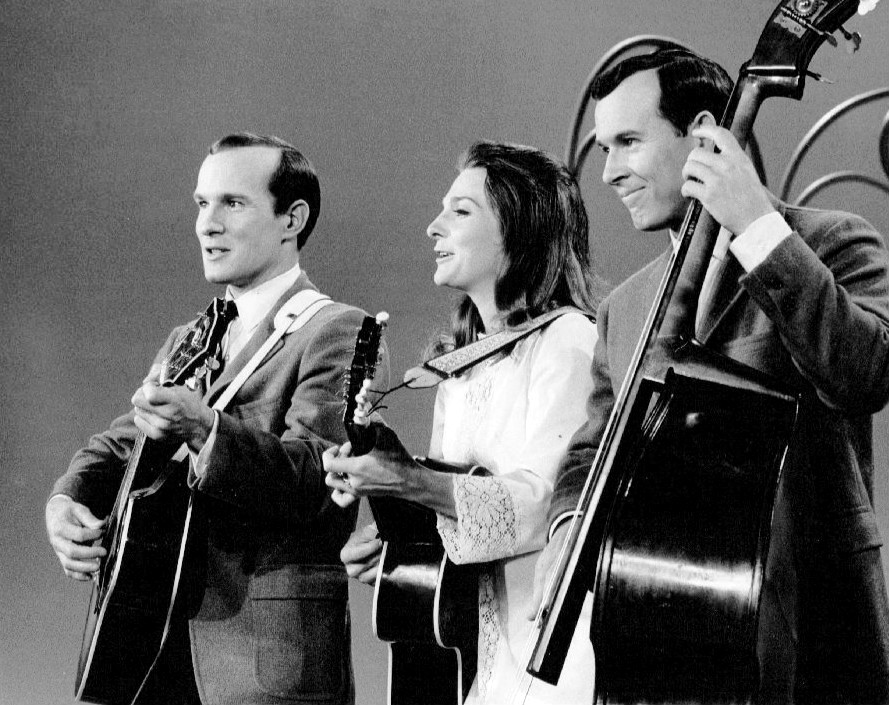
Judy Collins performing with Tom (left) and Dick Smothers on their television program The Smothers Brothers Comedy Hour.
I was a kid when they discovered irony. First, irony ore had to be dug from the comic vein, said to be buried in the Poconos, then smelted in the furnace of several very earnest cataclysms. By the time I came to reason, the culture had forged The Beatles (and in another layer of irony, The Monkees). Laugh-In was a variety show, Tiny Tim a pop singer, Pat Paulsen a presidential candidate, and Slaughterhouse-Five, Catch-22, and the film M*A*S*H reflections of war.
Vietnam was being called the first psychedelic war. In Robin Moore’s The Green Berets, a tribute to the newly-created American special forces that I read in my hometown library, the heroes use the latest methods and technology but sneak past the enemy in a dung cart pulled by a water buffalo. A Russian embedded with the National Liberation Front goes to battle bare-chested and wearing a cowboy hat, cowboy boots, and blue jeans. American troops, who call him “the cowboy,” vie to pop him from a distance.
I took most of this at face value when I was very young. I loved the comic actors Paul Lynde, Billy DeWolfe, and Charles Nelson Reilly without any notion of camp. I enjoyed It’s a Mad, Mad, Mad, Mad World several years after its release but had no idea about the long careers of actors in it.
In fact, I might say that my worldview was shaped to a large degree by coming to understand that much of the culture I first saw in the ’60s and ’70s—and which I have continued to discover and mine to this day—was ironic commentary on its own place in history. This fit with my personal history, since many of the figures important to me, including family, were at a distance, yet I saw connections to everything everywhere. I still think this was all due to the ongoing consequences of modernity, which I do not believe my father experienced as a child in the same part of the rural Midwest.
This week, comedian, actor, and musician Tom Smothers died of lung cancer at 86. He was one of my first lessons in this worldview; my surprise at discovering the distance between his life and his persona still resonates. He and his younger brother, Dick, had the short-lived variety show Smothers Brothers Comedy Hour on CBS, which I remember watching in black and white in 1967. Tommy—the diminutive form of the name—played the dumb one. As it turned out, he was probably the main negotiator for creative control of the show, and its head writer. He employed a young Steve Martin and was there at the “Bed-in” in Quebec, playing guitar, when John Lennon and Yoko Ono recorded “Give Peace a Chance.” The Smothers’ show was canceled by the network for the brothers’ opposition to the Vietnam War, having already upset LBJ, which I presume stemmed in large part from Tom.
As a child of an ironic, counter-cultural age I had to find my way through comic appearances to serious intent and personal bravery. Tommy Smothers was maybe the first entertainer I understood in this respect.
